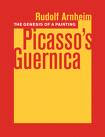The following quote is basically what I was trying to describe to Emily. I was blundering about trying to understand what it means to 'know the good as evil.' Emily did not really like this idea, but as we will see Williams' notion that 'man desired to know schism in the universe' is grounded in Adam and Eve's desire to be as God. Williams describes the Fall this way:
'It was merely to wish to know an antagonism in the good, to find out what the good would be like if a contradiction were introduced into it. Man desired to know schism in the universe. It was a knowledge reserved to God; man had been warned that he could not bear it – ‘in the day that thou eatest thereof thou shalt surely die.’ A serpentine subtlety overwhelmed that statement with a grander promise – ‘ye shall be as gods, knowing good and evil.’ Unfortunately to be as gods meant, for the Adam, to die, for to know evil, for them, was to know it by pure intelligence and by experience. It was, precisely, to experience the opposite of good, that is the deprivation of the good, the slow destruction of the good, and of themselves with the good.' (20)
Williams then goes on to describe the affects of sin on Adam and Eve. I like what he says for two important reasons: (1) it anticipates William's theology of redemption and (2) it is funny. Here's what he says:
'They made themselves aprons. It was exactly what they had determined. Since then it has often been thought that we might recover the single and simple knowledge of good in that respect by tearing up the aprons. It has never, so far, been found that the return is so easy. To revoke the knowledge of unlovely shame can only be done by discovering a loveliness of shame (not necessarily that shame, but something more profound) in the good. The Lord, it may be remarked, did not make aprons for the Adam; he made them coats. He was not so sex-conscious as some of the commentators, pious and other.' (21)
The affect of the Fall is reversed in the Passion and Ressurection of Christ. It is in the Passion that Christ knows evil in deprivation of all good, and in the Resurrection that the world can know evil as good. Williams writes:
'The knowledge of good and evil which man desired is offered as the excuse for their false knowledge of good. But the offer brings their false knowledge into consciousness and will no longer like the prophets blot it out. The new way of pardon is to be different from the old, for the evil is still to be known. It is known, in what follows, by the Thing that has come down from Heaven. He experiences a complete and utter deprivation of all knowledge of the good.' (57)
'The Passion and the Resurrection have been necessarily divided in ritual and we think of them as separate events. So certainly they were, and yet not as separate as all that. They are two operations in one; they are the hour of the coming of the kingdom. A new knowledge arises. Man had determined to know good as evil; there could be but one perfect remedy for that – to know the evil of the past itself as good, and to be free from the necessity of the knowledge of evil in the future; to find right knowledge and perfect freedom together; to know all things as occasions of love.' (58)
This ultimate reversal of the Fall is anticipated in the Incarnation, for it is here that humanity's desire to be as God is reversed by God's becoming as man:
'Men were never meant to be as gods or to know as gods, and for men to make any such intention a part of their pardon is precisely to try to behave as gods. It is the renewal of the first and most dreadful error, the desire to know as gods; the reversal of the Incarnation, by which God knew as Man, the heresy of thought and action denounced in the Athanasian Creed – it is precisely the attempt to convert the Godhead into flesh and not taking the manhood into God.' (60)
In Williams' theology, redemption is pictured as a great reversal. The moment of reversal begins with the Incarnation and ends with the Resurrection. By becoming man, God reverses the original desire to be as God. By becoming sin, God reverses the knowledge of good as evil, and, in his Resurrection, shows the evil of the past as good. God makes all crooked roads straight, and shows that what was meant for evil He now means it for good.




No comments:
Post a Comment